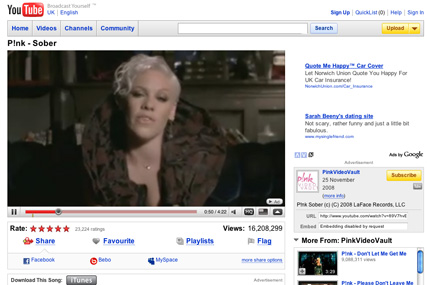
Patrick Walker, YouTube director of video partnerships, EMEA, said the site had been unable to renew its agreement on terms "that are economically sustainable for us".
He claimed that the Perfoming Rights Society "is now asking us to pay many, many times more for our licence than before", adding that the "costs are simply prohibitive for us. Under PRS's proposed terms, we would lose significant amounts of money with every playback".
In addition, Walker claimed that PRS was unwilling to tell YouTube what songs are included in the licence, hindering its ability to identify which songs are popular on YouTube. He added: "That's like asking a consumer to buy a blank CD, without knowing what musicians are on it."
However, PRS for Music, a collection society that collects royalties on behalf of nearly 50,000 composers, expressed outrage at Google's decision to pull the videos from YouTube.
It said: "Google has told us it is taking this step because it wishes to pay significantly less than at present to the writers of the music on which its service relies, despite the massive increase in YouTube viewing.
"This action has been taken without any consultation with PRS for Music and in the middle of negotiations between the two parties. PRS for Music has not requested Google to do this and it them to reconsider its decision as a matter of urgency.
Steve Porter, chief executive PRS for Music, said: "We were shocked and disappointed to receive a call informing us of Google's drastic action, which we believe only punishes British consumers and the songwriters whose interests we protect and represent."
Walker said that YouTube was "still working with PRS for Music in an effort to reach mutually acceptable terms for a new licence, but until we do so, we will be blocking premium music videos in the UK that have been supplied or claimed by record labels".


.jpg)


.jpg)